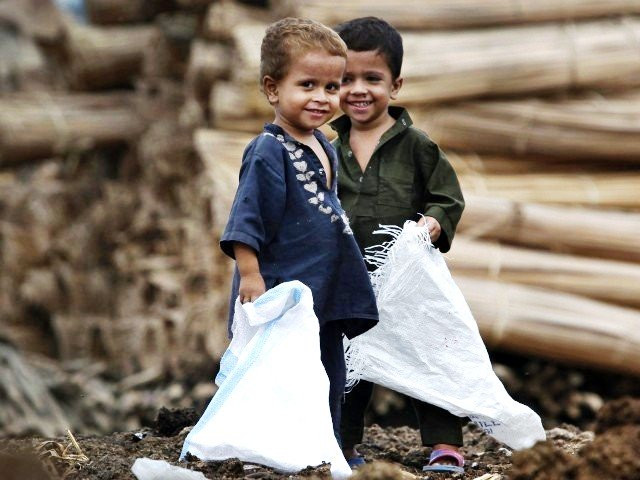Harsh reality of poverty
The poor in Pakistan are not looking for a handout. They just want a ladder that they can climb for themselves.

40 per cent of Pakistan’s population lives below the globally accepted poverty line of $1.25 per day. PHOTO: REUTERS/FILE
But while the minister made some noises about the need to alleviate poverty, neither the minister nor the Nawaz Administration as a whole has announced any plans to tackle the massive and growing income inequality in the country. Instead, their focus has been on a somewhat skewed version of economic liberalisation, which may indeed have positive effects for the economy overall, but has a tendency to exacerbate income divides, unless also accompanied by carefully crafted redistributive policies.
As has been previously reported in this newspaper, the bottom 20 per cent of Pakistanis by income have never seen their incomes match inflation over the past decade, let alone outpace it. The top 20 per cent, by contrast, have seen their average incomes almost always surpass inflation. Simply put, not only is there a wide gap between the rich and the poor in Pakistan, it is getting wider. No republic can survive when such a large proportion of its population believe, correctly, that the game is rigged against them.
The hallmark of a truly civilised society is its willingness to care for the least privileged among it. For all its flaws, the previous administration set up a mechanism to help the poorest Pakistani households get by a little better, through the Benazir Income Support Programme, since renamed to the Pakistan Income Support programme. But while this income transfer scheme is a good start, sustainable poverty alleviation needs far more investment in an infrastructure that ensures social mobility. The poor in Pakistan are not looking for a handout. They just want a ladder that they can climb for themselves.
Published in The Express Tribune, January 25th, 2014.
Like Opinion & Editorial on Facebook, follow @ETOpEd on Twitter to receive all updates on all our daily pieces.a














COMMENTS
Comments are moderated and generally will be posted if they are on-topic and not abusive.
For more information, please see our Comments FAQ